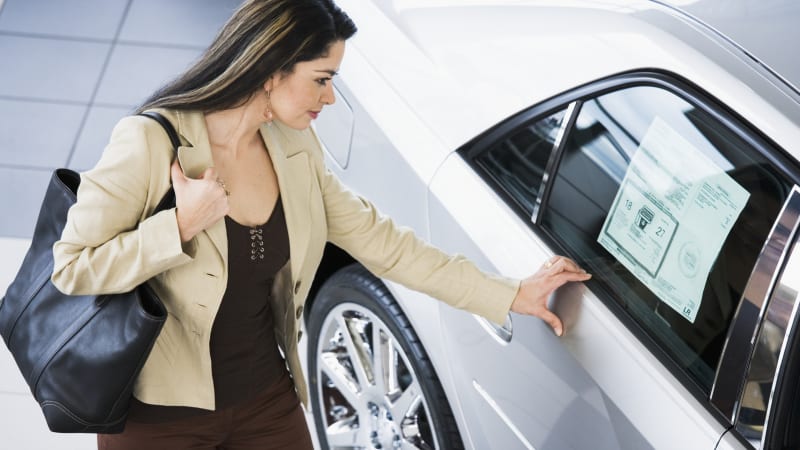What is MSRP?

This is part of our Car Buyer’s Glossary series breaking down all the terms you need to know if you’re buying a new or used car from a dealership.
When shopping for a new car, you’ll likely run across the term MSRP in reference to pricing. In fact, MSRP is an abbreviation for “manufacturer’s suggested retail price.” It’s an apt name, as it is simply the price that the manufacturer suggests the dealer asks for the car. It’s also referred to as the sticker price. You’ll see it on the Monroney (aka window sticker) while perusing any dealership shopping for cars — it’s the law to have it there.
However, the dealership doesn’t have to charge that price at all and in fact rarely does. It’s only “suggested,” after all. Most of the time buyers will drive away having paid less than the MSRP lists, but the dealership can also mark the price up when there is heavy demand for a particular car. Historically, this has meant recently introduced cars that have captured the attention of car enthusiasts or even the general public. However, supply shortages can lead dealers to mark up even relatively mundane new cars, as happened during the COVID-19 pandemic.
So, how is the MSRP determined?
This price is determined by a manufacturer by adding up the base price, destination charges and options on the car. The base price is typically what the car costs without any of the aforementioned charges included. Put everything together, and you’ll be looking at the MSRP.
Is MSRP the same as the selling price?
No. Remember, the “S” in MSRP stands for suggested. It’s basically a starting point for negotiations
What effect does MSRP have on what you ultimately pay?
The MSRP, also known as the sticker price, is most likely the biggest factor in what you end up walking out the door paying. Of course, you can negotiate a cheaper price if the dealer is willing to negotiate. Dealerships will always try to get you to pay that full MSRP, but more times than not, a deal is struck below said value.
Does MSRP include tax?
No. Sales tax and registration fees are not included in the MSRP. If there is a gas guzzler tax on a particularly inefficient car, however, that will be included in the sticker price.
How much below MSRP is the dealer invoice?
The invoice price is the amount the dealer pays to the manufacturer, which is usually hundreds or thousands less than the MSRP. The difference between invoice and MSRP is usually less than 10%, though. Dealers are unlikely to divulge the invoice price on a car.
How much off MSRP can I negotiate?
That depends on the car, supply and demand, and whether there are any incentives available. You can probably get a better price on a slow-selling model, but on, say, a newly launched enthusiast car, you might be lucky just to avoid a markup above MSRP. There’s no magic number, here, but if you research what other people are paying for the same model — the market value — that could help you decide what you think is a fair price when you go to the dealership.
Does MSRP include destination fee?
The advertised MSRP does not usually include destination fees (some automakers include them), though a window sticker will include destination in the car’s total MSRP, which includes options and other additional equipment.
All seems pretty straightforward, right?
That’s right. The manufacturer’s suggested retail price is one of the easier concepts to grasp when it comes to navigating the process of buying a new car. It’s a super-easy way to compare vehicles in the same segment based on what a manufacturer thinks the car is worth. Most manufacturers’ websites will list the MSRP, so figuring out what a car costs is simple online. Sometimes you’ll see manufacturers use MSRP for describing a car’s price without any options or destination charges.
Pay attention to promotions and sales that manufacturers run every now and then, though. If you bide your time and wait for the car you want to have some cash on the hood, there’s a great chance of you driving away with a new car for far below the listed MSRP. Or, if the auto industry is mired in supply shortages, it might be best to hold off that new car purchase if you want to pay less than MSRP (or not pay more than it).
Related Video:







